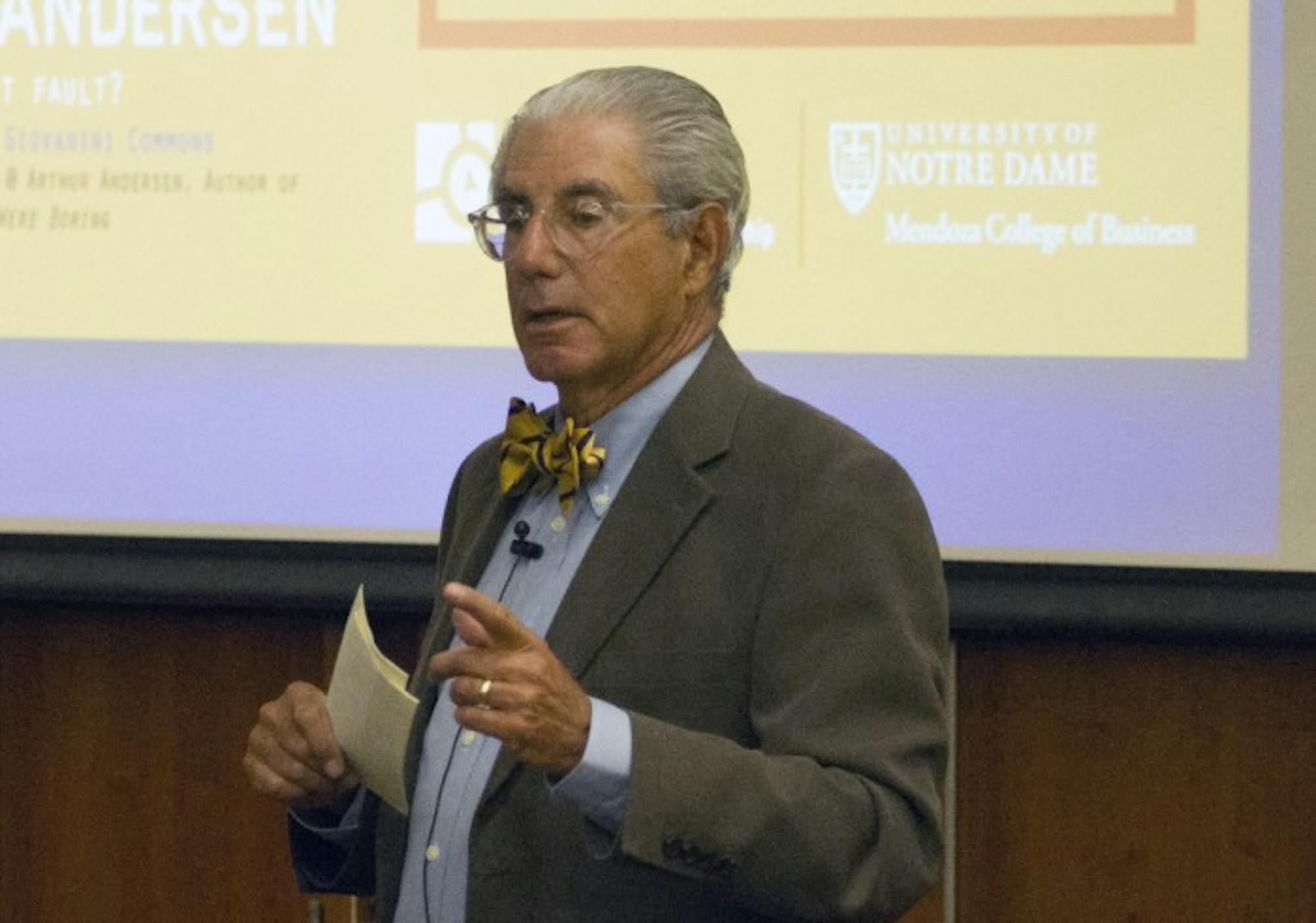Larry Katzen discussed the collapse of the accounting company Arthur Andersen on Tuesday afternoon, as part of the annual Ethics Week hosted by the Mendoza College of Business. Katzen, who was a managing partner at the company when it was indicted for obstruction of justice in association with Enron, said the media played a large part in the company’s downfall.
“Everything people learned about the Arthur Andersen and Enron case was what they read in the papers and saw on TV,” Katzen said. “It all said that Arthur Andersen did a terrible auditing job, and this was responsible for the demise of the company.”
Katzen disputed this portrayal, arguing there was no evidence Arthur Andersen did anything wrong during the auditing process.
As an accounting firm for Enron, Arthur Andersen had millions of documents subpoenaed after Enron was exposed for accounting fraud, Katzen said. However, he challenged the accusation that Arthur Andersen shredded important documents prior to the subpoena.
“It’s a requirement that before you get an indictment, you must destroy all documents that are irrelevant to the auditors,” he said.
Furthermore, Katzen said Enron’s fraud was mainly related to special purpose entities, which another accounting firm was responsible for auditing. Katzen said Arthur Anderson, throughout his 35 years at the company, maintained a high ethical standard.
“The reason why I joined Arthur Andersen was their integrity,” he said. “These people walked away from clients that they felt were not operating under conservative accounting principles.”
Katzen said the effects of the scandal were devastating. Within 90 days of the indictment, Arthur Andersen had lost its right to audit and was out of business.
“Eighty-five thousand people lost their jobs because of Arthur Andersen’s association with Enron,” he said.
Although Katzen said he was about to retire right before the scandal hit, he stayed on for longer in order to help other employees find new jobs.
“I can proudly say that almost all 85,000 people have landed on their feet well and have done great things in their new organizations,” he said.
Katzen said he learned from this experience “to do the right thing, no matter what the political ramifications might be.” In addition, Katzen said his decision to delay retirement helped him learn the sacrifice that is often necessary for the greater good of the company.
“You will go through situations where you have to make tough decisions and must make personal sacrifices,” he said.
Katzen also said his desire for new knowledge and strategies helped him to have a long and accomplished career. Up until his retirement, he regularly attended new training sessions and workshops, he said.
“The only way you can stay ahead of this game throughout your entire career is to continually learn new things,” he said. “Don’t get soft and lean on your past. You have to always rise to the top.”
Finally, Katzen said a company must have a culture that values integrity in order to be successful.
“The common culture is the glue that holds an organization together,” Katzen said.
Ethics Week at the Mendoza College of Business will continue tomorrow with the keynote address, to be delivered by Susan Ochs, a senior fellow and founder of the Better Banking Project. The lecture, titled “Managing Mindset: The Key to Better Corporate Behavior,” will take place in Giovanini Commons at 4:30 p.m.













